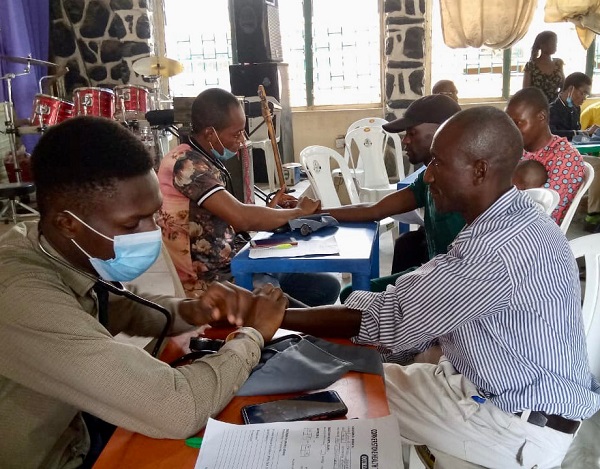
As Nigeria enters a new year, citizens across the country are expressing high hopes and expectations for a more effective and equitable health sector.
In separate interviews with Science Nigeria on Monday in Abuja, Nigerians from various regions –Lagos to Kano, Port Harcourt to Maiduguri – called for transformative reforms to address systemic challenges, enhance healthcare access, and ensure equitable services for all.
A common demand is increased government funding for the health sector. According to the World Health Organisation (WHO), Nigeria’s health expenditure as a percentage of GDP remains below the recommended standard. Citizens are urging federal and state governments to prioritise investments in healthcare infrastructure, particularly in rural and underserved areas.
“Many of our health facilities are dilapidated, lacking essential equipment and medications,” said Bashir Adamu, a community leader in Kaduna. “Nigerians want functional hospitals and well-equipped primary healthcare centres in every local government area.”
The affordability of healthcare services is another pressing issue. Rising out-of-pocket expenditures continue to strain households, especially those in low-income brackets. Stakeholders are advocating for an expansion of the Basic Health Care Provision Fund (BHCPF) and universal health coverage (UHC) policies to alleviate these financial burdens.
“Healthcare should not be a privilege for the wealthy,” said Joy Chika Nwankwo, a schoolteacher in Enugu. “The government must make health insurance accessible and affordable for everyone, including informal workers.”
With Nigeria having one of the highest maternal mortality rates globally, there are urgent calls to improve maternal and child health outcomes. Advocacy groups emphasise the need for quality antenatal care and safe delivery services for every pregnant woman.
“No woman should die giving life,” said Fatima Usman, a midwife in Maiduguri. “Every mother deserves access to skilled care and essential services during pregnancy and childbirth.”
The exodus of healthcare professionals remains a critical concern. Citizens are urging the government to address this brain drain by improving the welfare, salaries and working conditions of health workers.
“Better pay, continuous training, and incentives will encourage our doctors and nurses to stay and serve their communities,” said Olu Balogun, a public health physician in Lagos.
Recent outbreaks of diseases like Mpox and the persistent threat of cholera, Lassa fever, and malaria have underscored the need for a robust public health response. Experts stress the importance of strengthening disease surveillance, increasing vaccination coverage, and ensuring rapid emergency responses.
“We’ve seen how devastating epidemics can be,” said Ngozi Okafor, a parent in Abuja. “The government must invest in public health preparedness and ensure every child gets vaccinated.”
Optimism surrounds the leadership of the Ministry of Health and Social Welfare under Prof. Ali Pate. However, citizens emphasise the importance of transparency and accountability in implementing health sector policies and programs.
“We have capable leaders, but they must ensure that funds are used judiciously and that policies benefit the average Nigerian,” said Adebola Taiwo, a civil society activist.
As Nigerians share their expectations, there is a growing consensus that achieving a robust health system will require collaboration among government officials, health workers, private sector players and citizens.
While challenges persist, the hope for a healthier Nigeria remains strong in the hearts of millions.

